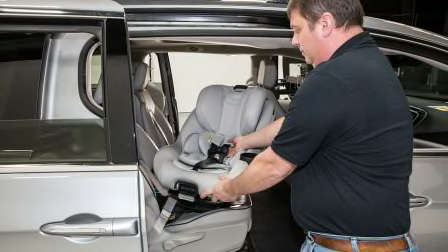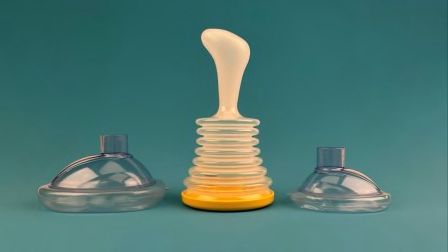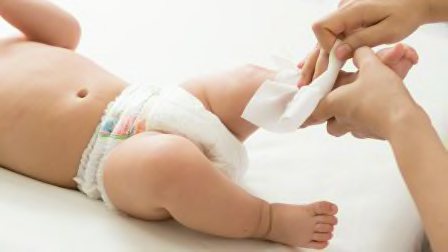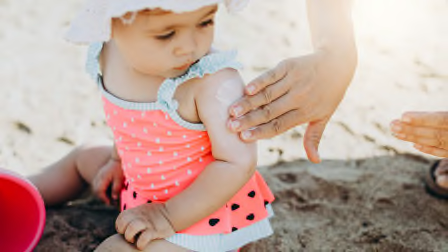Inclined Sleeper Deaths Rise to 50 as Industry Continues to Sell the Products
Fisher-Price recalled its sleeper, but CR says parents should avoid similar products, and Congress proposes banning them
At least 50 babies are now known to have died in infant inclined sleep products such as the Fisher-Price Rock ’n Play Sleeper, raising the death toll from the previous count of 37. The additional deaths were reported publicly in the weeks after a Consumer Reports investigation into the dangers posed by the products.
Though Fisher-Price and Kids II have recalled their inclined sleepers, several other manufacturers continue to sell similar products that pose the same risks.
Infant inclined sleepers are designed to have babies sleep at an incline between 10 degrees and 30 degrees. All such products increase the likelihood of airway compression and suffocation, according to the American Academy of Pediatrics. And all run counter to recommendations from the AAP, the National Institutes of Health, the Centers for Disease Control and Prevention, and the federal Maternal and Child Health Bureau. These organizations say babies should be put to bed on their back—alone, unrestrained, and on a firm, flat surface free of bumpers and other soft bedding.
In April, Fisher-Price recalled all 4.7 million of its Rock ’n Play Sleepers and Kids II recalled all of its 694,000 inclined rocking sleepers after the CR investigation linked the products to infant fatalities.
Among the additional Rock ’n Play Sleeper deaths publicly reported since CR’s article, four were reported to SaferProducts.gov, a website maintained by the Consumer Product Safety Commission. And last week, four other families filed a joint lawsuit, alleging that their infants suffocated while in the Rock ’n Play Sleeper, with three of those deaths occurring between January and March 2019, just before Fisher-Price recalled the product.
To read the latest news on these products, see CR's ongoing coverage of infant inclined sleepers. And to see which sleepers have been recalled, see CR's list, which will be updated as needed.
As Regulators Stall, Congress Steps In
The CPSC has left the future of inclined sleepers to ASTM International, an organization that brings manufacturers, government officials, medical experts, consumers, and others together to establish voluntary industry standards for thousands of products and processes. (CR is a member and participates in working groups, including the subcommittee for infant inclined sleep products.)
But in May, the ASTM infant inclined sleep products subcommittee decided—against objections from CR and some other members—that rather than pulling the category from the market, it would simply investigate the product’s standard and potential hazards further and reconvene in October 2019.
In the interim, infant inclined sleepers remain on the market.
“It was unbelievable to be in that meeting and hear that the industry needs more data to eliminate the category,” says Don Huber, director of product safety at CR, who sits on more than a dozen ASTM panels. He notes that when Fisher-Price and others introduced inclined sleepers a decade ago, they did not have to provide evidence that the products were safe for sleep. “Why is there a greater burden to provide data to remove a hazard than to introduce one?” Huber says.
While industry and the CPSC delay, some members of Congress are introducing legislation to stop the sale of inclined sleepers. Rep. Tony Cárdenas, D-Calif., and Sen. Richard Blumenthal, D-Conn., introduced legislation that would prohibit the manufacture, import, and sale of infant inclined sleep products. The Senate version would prevent the CPSC from signing off on any infant sleep products that are not “consistent with safe sleep best practices.”
Rep. Cárdenas said June 13 at a House hearing that he introduced the bill because “companies decided making money was more important than the lives of innocent babies” and “because the regulatory agency charged with protecting Americans decided to be puppets for industry and stood by as more precious lives were lost.” He added that though there have been two recent major recalls of inclined sleepers, products from other companies are still available. “As a grandparent, it’s just appalling,” he said.
Why Inclined Sleep Is Unsafe for Babies
Many parents have long believed not only that inclined sleepers are safe but also that they help babies who seem to suffer from frequent spit-up, also known as reflux. But experts say that sleeping at an incline is not helpful for babies with reflux. And numerous studies have shown that sleeping on an incline—whether in a sleeper, car seat, or bouncer seat, and especially when restrained—poses several serious risks.
For one, sleeping at an incline can cause a baby’s head to fall forward, which can compress the neck and airway and lead to a drop in oxygen, lowered heart rate, and even suffocation (also known as asphyxia). And because babies don’t have strong neck muscle control, they may not be able to lift their head up and restore airflow to the lungs.
Further, research shows that restraints, such as those in inclined sleepers, increase the risk of strangulation and entrapment.
The AAP’s Hoffman also says the design of many inclined sleepers, which often includes rocking babies and nestling them in soft padding, “actually lull the baby into a deeper sleep than they are supposed to have,” making them less able to rouse themselves if their airflow is compromised.
He explains that babies are meant to wake up throughout the night, especially within the first four to six months. Though it can be exhausting for parents, night waking is normal for a baby’s developing brain and is even protective against sleep-related death.
Airway compression due to an inclined sleep position seems to be what happened to many of the babies who died in the Fisher-Price Rock ’n Play Sleeper, according to the medical investigations and legal documents CR has reviewed. And it seems to be what happened in all four of the deaths described in the latest lawsuit, filed June 12 by the firms Wolf Haldenstein and Blank Rome against Fisher-Price and its parent company, Mattel.
In one of those deaths, Amanda Butler of Crossroads, Ala., alleges that she nursed her 10-week-old daughter Arya on the morning of Jan. 2, 2019, and put her to sleep in a Rock ’n Play Sleeper next to her own bed. When Amanda woke around 9 a.m., Arya was on her back in the sleeper; her head was tilted forward and to the side, her skin was blue, and her body limp.
Amanda called 911 and performed CPR while her 5-year-old son—who’d heard Amanda’s screams—came into the room and looked on. “When Amanda pumped Arya’s tiny chest, blood came from Arya’s mouth,” the lawsuit alleges. “The taste of Arya’s blood remained in Amanda’s mouth for hours.”
Emergency medical technicians at the house and emergency room staff in the hospital tried, but failed, to resuscitate Arya, the lawsuit alleges.
Inclined Sleepers Were Never Adequately Safety-Tested
While the risk of inclined sleepers became widely known only after CR reported on the large number of deaths linked to the Rock ’n Play Sleeper, Fisher-Price and the CPSC knew of the risks well before then, according to CPSC data and lawsuits filed against Fisher-Price.
What’s more, Fisher-Price failed to adequately test its product for safety before bringing it to market in 2009, according to Fisher-Price emails and depositions obtained through discovery in lawsuits against Fisher-Price. The company never conducted a thorough medical analysis or commissioned independent third-party testing to establish whether it was safe for infants to sleep at a 30-degree incline.
The documents show that as Fisher-Price developed its product, the only medical expert the company consulted was Gary Deegear, M.D., of San Antonio, who was a family practice physician, not a pediatrician or sleep specialist. In the years following his work on the Rock ’n Play Sleeper, Deegear failed to renew his medical license, according to the Texas Medical Board’s website. And when the board later learned that Deegear continued to treat patients without a license at several medical spas, sometimes while he was under the influence of drugs or alcohol, it issued a cease-and-desist order forbidding him from acting “in the guise of a physician.” CR attempted to contact Deegear at multiple phone numbers but could not reach him.
Fisher-Price emails show that Deegear’s evaluation of the Rock ’n Play Sleeper prototype was far from comprehensive and that his advice ran counter to established safe sleep recommendations. For example, in one email, Kitty Pilarz, who was then the director of product safety at Mattel, wrote: “Dr. Deegear stated pediatricians recommend babies with reflux sleep at 30 degrees, this is just fine, or sleep in a car seat overnight for months or even a year. The Back to Sleep campaign places children on their backs, and elevated positions of the head is fine. He is not aware of research on this.”
Based in part on that faulty advice, Fisher-Price determined that the Rock ’n Play Sleeper was safe.
In a deposition, Pilarz acknowledged that the company had little evidence documenting the product’s safety. At one point, the lawyer for a family whose child suffocated while in the Rock ’n Play Sleeper asked: “Prior to introduction into the market in 2009 with the Rock ’n Play Sleeper, . . . you’re not aware of having found any literature that says it was safe for a child to sleep on their back all night long at this elevated position, correct?” Pilarz responded: “Correct.”
And when asked whether Fisher-Price had conducted any independent research to determine whether sleeping all night at a 30-degree incline was safe for infants, Pilarz admitted that the company had not.
But that didn’t stop Fisher-Price from moving forward with its product. As CR previously reported, the Rock ’n Play Sleeper bobbed and weaved its way through a regulatory maze and onto store shelves in 2009, and in fact later helped to create the industry’s voluntary standard for this new product category.
Other companies soon followed, creating their own inclined sleepers—which were marketed aggressively for naptime and nighttime sleep. Ultimately, the misconception that inclined sleepers were safe seeped into the sleep-deprived consciousness of parents across the country.
Assessing the Marketplace
There still is no research supporting the notion that putting babies to sleep on an incline is safe. Yet many sleep products designed for that purpose are still for sale. (CR has compiled a list of the inclined sleepers that have been recalled, and it will be updated as needed.)
CR attempted to identify as many of those products as we could, by canvasing the marketplace and asking manufacturers that are members of ASTM about their products. Several—including Baby Trend, Delta, Kolcraft, and Uppababy—said they do not make inclined sleepers and have no plans to do so. Others confirmed that they sell inclined sleepers, and said their products are safe and not linked to any reported deaths or injuries.
In some cases, deciding what advice to give consumers was difficult, in part because a few manufacturers are currently changing their descriptions for the intended uses of the products.
For example, soon after CR asked Graco about its DreamGlider Gliding Seat & Sleeper, the company removed “& Sleeper” from the product’s name on its website. Graco made the change after “a thorough internal review” to “help prevent consumer misinterpretation of how the product should be used,” according to a company spokesperson. “When the products are used as a napper, they are not intended for unsupervised or prolonged periods of sleep,” the spokesperson said. “If consumers are searching for an overnight sleep option, we recommend consumers consider a crib, bassinet, or play yard (without blankets, pillows, or stuffed animals).”
Note that there are many other products, such as bouncers, that put babies at an incline but that are not meant for sleep. They are fine for supervised play, but babies should always be transferred to an approved, flat surface for sleep. Similarly, car seats, which are inclined, are meant to protect children while traveling but are not intended for unsupervised sleep outside of a car.
While the list below is not exhaustive, here are the products CR has identified so far.
Inclined Sleepers to Avoid
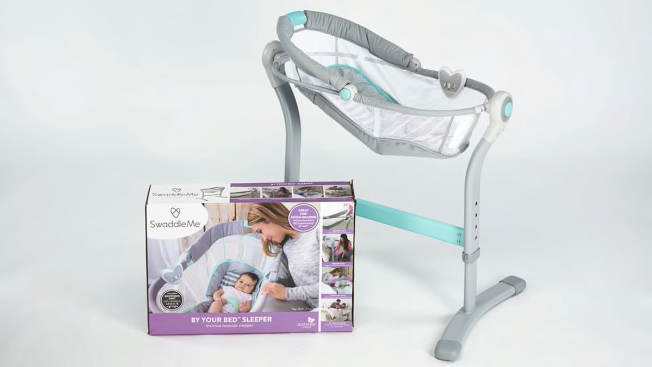
CR CR
These products are (or were) marketed primarily for sleep, and all have inclines greater than 10 degrees. CR says you should not buy any of these products or accept them as hand-me-downs; if you already have one, try to return it for a refund, or throw it away.
- Fisher-Price Rock ’n Play Sleeper, recalled in the U.S. on April 12, 2019, because of more than 30 reported infant fatalities.
- Fisher-Price Rock 'n Play Sleeper was recalled by Health Canada on May 15, 2019, with two separate recalls, citing safety risks. The first involved approximately 2,000 products sold from December 2009 to February 2011 with model number R6070. The second involved about 600 sleepers, of various models, that were sold on Amazon.ca (Amazon’s Canadian website) between January 2018 and April 2019. The recall does not apply to Fisher-Price Rock ‘n Play Soothing Seats, which are nearly identical products but not marketed for sleep.
- Fisher-Price inclined sleeper accessory sold with Ultra-Lite Day & Night Play Yards, recalled in the U.S. on June 27, 2019, because of fatalities reported while using other inclined sleep products.
- Kids II Rocking Sleepers, such as the Ingenuity Moonlight Rocking Sleeper, recalled in the U.S. on April 26, 2019, because of a reported five infant fatalities.
- Evenflo Pillo Portable Napper, recalled in Canada on June 4, 2019, because it does not meet the country’s regulations for bassinets, cradles, and cribs.
- Hiccapop DayDreamer, marketed with language including “the perfect anywhere-anytime sleeper” and “there is nothing safer for your baby.” The company also claims that the product “passes all federal test standards for sleep products as well as the federal CPSIA [Consumer Product Safety Improvement Act] laws of 2008.” But a company spokesperson told CR that the federal testing and law it refers to relates to lead and phthalate levels, not sleep, making the claim potentially misleading.
- Baby Delight Go With Me - Sway Portable Infant Rocker. The manufacturer website says that the product’s “super soft, plush seat is slightly inclined” and that it’s “the perfect spot for napping anywhere you go!”
- Baby Delight Nestle Nook Comfort - Plush Infant Napper. The company describes the product as “designed to create a comfortable and safer place for your baby to nap and lounge.” The company told CR that, unlike its other product (the Baby Delight Go With Me), this one is not certified as an inclined sleeper. But CR believes it belongs on this list because it is called a “napper” and CR’s testers measured its incline at more than 20 degrees.
- SwaddleMe By Your Bed Sleeper (made by Sumr Brands), marketed as “the only bedside sleeper with adjustable incline, ensuring your little one sleeps comfortably through the night.” Note that although CR purchased this product May 29, 2019, it no longer appears on the company’s website because the product is in its last production run, a company spokesperson said.
- Chicco Lullaby Dream Playard’s inclined napper insert. The napper was tied to an infant fatality, according to a lawsuit filed June 11, 2019, against Chicco USA.
- Disney Baby Doze and Dream Bassinet (model BT071DHS) and Eddie Bauer Slumber and Soothe Rock Bassinet (model BT055CSY), recalled in the U.S. on July 31, 2019, by Dorel Juvenile Group USA because of infant fatalities linked to other similar inclined sleepers.
Multipurpose Inclined Products Not to Use for Sleep
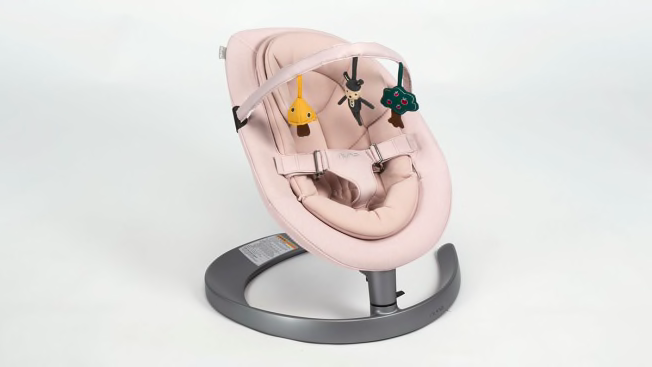
CR CR
Other products that have an incline above 10 degrees and are marketed for sleep are also marketed as rockers, bouncers, or swings. CR’s safety experts say that these products are fine to use when your child is awake but that you should monitor your baby closely and transfer him or her to a firm, flat surface, such as a crib or bassinet, as soon as your baby falls asleep.
- Graco Duet Glide LX Gliding Swing. The product description says that the seat doubles as “a portable napper for use throughout the home.”
- Graco DreamGlider Gliding Seat & Sleeper (as stated on the product box). In response to CR’s questions about the product, Graco told us that it doesn’t recommend the product for “unsupervised sleep” and is removing “sleeper” from the product’s name. The packaging on the product CR recently purchased calls it a sleeper and shows an image of a baby sleeping unsupervised.
- Nuna Leaf Grow Bouncer. When CR contacted the company, the product’s marketing materials said, “Movement so calming, [babies] may just start snoozing. And if they do? No problem. Adjust the seat to the recline level they love best. Your baby will adore it. No matter how old they are.” After being contacted by CR, a spokesperson said, “We have always agreed with Consumer Reports’ position that infants should not sleep unattended at an incline for long periods of time.” The spokesperson also said the company planned to take “immediate action to change its warnings, instructions, and marketing materials to minimize consumer confusion.”
- Tiny Love 3-in-1 Rocker Napper and Tiny Love Cozy Rocker Napper. These products are similar, and they are designed to offer three reclining positions. CR measured the lowest incline of both nappers to be above 10 degrees. When CR asked Tiny Love about the products, the company said that they are “not intended for unsupervised or prolonged periods of sleep.” But CR’s safety experts believe that calling a product a “napper,” while also saying it’s not for unsupervised or prolonged sleep, is confusing and potentially dangerous, particularly when a product has an incline greater than 10 degrees. Note that although CR purchased these products in June, the Cozy Rocker Napper no longer appears on the company’s website. A company spokesperson said the products were discontinued earlier this year because of low sales.
- Fisher Price 4-in-1 Rock 'n Glide Soother. The product's marketing on Amazon states that it has "3 nature sounds to help comfort and lull baby to sleep" and that "you’ll have a portable, calming vibrations rocker that’s ideal for napping." A sleeping baby is also featured. While several websites show that the product is unavailable for purchase, consumers may still have the item in their homes.
Editor’s Note: This article, first published June 20, 2019, was periodically updated to include information about additional products: the 3-in-1 Rocker Napper and the Cozy Rocker Napper, both sold by Tiny Love; an inclined-sleeper accessory sold with Ultra-Lite Day & Night Play Yards, sold by Fisher-Price; the Chicco Lullaby Dream Playard’s inclined napper insert; the Disney Baby Doze and Dream Bassinet (model BT071DHS) and the Eddie Bauer Slumber and Soothe Rock Bassinet (model BT055CSY), both made by Dorel Juvenile Group USA; the Fisher Price 4-in-1 Rock 'n Glide Soother; and the Fisher-Price Rock 'n Play Sleeper in Canada and the Fisher-Price Rock 'n Play Soothing Seat in Canada.
Since the publication of this article, CR has compiled a list of recalled infant inclined sleep products, which will be updated as needed.

















